A.G. Noorani: A Tribute to a Towering Intellectual and Stalwart of Justice
Abdul Gafoor Majeed Noorani, fondly known as A.G. Noorani, passed away at his home in Mumbai on August 29, 2024, at the age of 93. As a scholar, lawyer, biographer, historian, and political commentator, Noorani left an indelible mark on India's legal and intellectual landscape. His life's work, characterized by a relentless pursuit of truth, justice, and equity, has left a legacy that continues to resonate with scholars, lawyers, and policymakers worldwide.
Early Life and Career
Born on September 16, 1930, in Bombay (now Mumbai), Noorani's life was marked by a deep commitment to learning and justice from an early age. He attended St. Mary’s School and later graduated with a law degree from the Government Law College in Mumbai. His sharp legal mind became evident early in his career when he began practicing law at the Bombay High Court in the 1950s. Noorani quickly distinguished himself as a formidable legal mind, gaining a reputation as an expert on constitutional law.
The Defender of Justice and Champion of Civil Liberties
Noorani's career was marked by his fierce advocacy for civil liberties and human rights. He was a vocal critic of governmental policies that threatened democratic values and communal harmony. His legal work was characterized by his defense of marginalized communities and his unyielding stance against injustice. Perhaps his most notable legal battle was his defense of Sheikh Abdullah, the first elected Prime Minister of Jammu and Kashmir. Noorani’s involvement in Abdullah’s defense in the 1960s during the Kashmir conspiracy trial marked the beginning of his lifelong commitment to the Kashmir cause.
Introduced to Kashmir through Mridula Sarabhai, a prominent political figure and staunch supporter of Sheikh Abdullah, Noorani's commitment to the region transcended professional obligation. His defense of Abdullah was not just a legal battle; it was a reflection of his profound belief in justice and the rights of the Kashmiri people. Noorani's work in Kashmir extended beyond the courtroom; he became an influential voice in the discourse surrounding the region's political future and the rights of its people.
The Kashmir Issue: A Lifelong Commitment
Noorani's scholarly work on Kashmir was groundbreaking. He authored several seminal books on the subject, including "The Kashmir Dispute—1947-2012" and "Article 370: A Constitutional History of Jammu and Kashmir." These works are considered authoritative references on the complex legal and political issues surrounding the region. Noorani was critical of successive Indian governments' handling of Kashmir and was unafraid to voice his disapproval, even if it meant going against the grain of mainstream political discourse.
His personal and professional commitment to Kashmir was intertwined with his deep respect for its culture and people. Noorani’s bond with Kashmiri leaders was founded on mutual respect and a shared vision for a peaceful resolution to the Kashmir conflict. His role in drafting the “Kashmir Formula,” a peace plan aimed at resolving the Kashmir dispute without altering territorial boundaries, highlighted his diplomatic acumen and deep understanding of the geopolitical complexities of the region. This initiative, which he attributed originally to India but later proposed by Pakistan's President Pervez Musharraf, sought to bridge the divide between India and Pakistan while honoring the aspirations of the Kashmiri people.
A Prolific Writer and Intellectual
Noorani’s intellectual contributions were not confined to his legal practice. He was a prolific writer, contributing to several leading publications, including The Hindu, Frontline, The Statesman, Dawn, Economic & Political Weekly, and Dainik Bhaskar. His writings covered a broad spectrum of subjects, from constitutional law and civil liberties to historical events and international relations. Noorani was known for his meticulous research and ability to weave complex legal arguments with historical insights. His columns were often a scathing critique of communal politics and the erosion of democratic values in India.
N. Ram, Director of The Hindu Group of Publications, described Noorani as "a journalist’s journalist; erudite, versatile, brave, fiercely independent—and inexhaustibly productive on issues that matter." Noorani's writings were distinguished by their depth and clarity, providing a comprehensive analysis of the issues at hand. His ability to draw on archival materials to substantiate his arguments made his work invaluable to scholars and policymakers alike.
An Advocate for Secularism and Social Justice
Throughout his career, Noorani remained a staunch advocate for secularism and social justice. His work often focused on the rise of right-wing conservatism and Hindutva politics in India, which he saw as a threat to the country’s pluralistic fabric. He was a fierce critic of the Rashtriya Swayamsevak Sangh (RSS) and the Bharatiya Janata Party (BJP), often highlighting the dangers posed by their ideology to India's secular and democratic ethos. His books, such as "The RSS: A Menace to India," "Savarkar and Hindutva: The Godse Connection," and "Islam and Jihad," reflect his deep concern about the growing influence of divisive politics in India.
Noorani’s commitment to secularism and his outspoken criticism of communal politics earned him both admiration and criticism. However, he remained undeterred, continuing to use his pen as a weapon against injustice and oppression. His fearless critique of policies and leaders, regardless of their political affiliations, underscored his commitment to truth and justice.
Personal Touches and Lasting Legacy
Noorani was not just an intellectual giant; he was also known for his personal charm and love for life. His deep attachment to Kashmir was also evident in his fondness for Kashmiri Wazwan cuisine, which he enjoyed sharing with friends and colleagues. His relationships with Kashmiri leaders, such as Sheikh Abdullah and Mirza Afzal Baig, went beyond professional interactions, often marked by personal warmth and camaraderie.
Noorani's death marks the end of an era. His contributions to Indian legal and political discourse are unparalleled, and his absence leaves a void that is deeply felt across legal, academic, and political communities. Leaders and intellectuals across the spectrum, including former Vice President of India Hamid Ansari, National Conference leader Omar Abdullah, and AIMIM chief Asaduddin Owaisi, have mourned his passing and celebrated his immense contributions to India’s intellectual and political landscape.
A.G. Noorani was more than a scholar and lawyer; he was a guardian of justice, a defender of civil liberties, and a voice of reason in a world often dominated by partisanship and prejudice. His legacy as a constitutional expert, a staunch advocate for human rights, and an insightful commentator on Indian and international politics will continue to inspire future generations. As we bid farewell to this towering personality, we do so with a deep sense of loss but also with immense gratitude for the rich legacy he has left behind. His work, characterized by its depth, rigor, and commitment to justice, ensures that A.G. Noorani’s influence will endure for years to come.
Rest in peace, A.G. Noorani. Your life’s work continues to guide and inspire us.
Disclaimer
The views expressed in this article are the author’s own and do not necessarily mirror Islamonweb’s editorial stance.

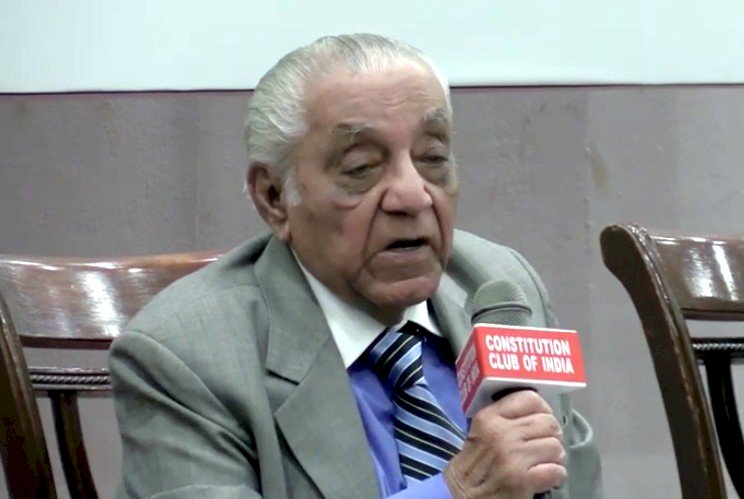



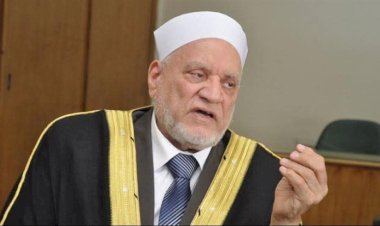
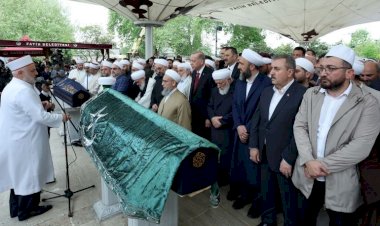
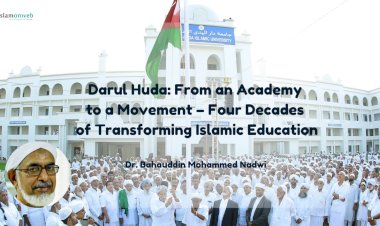

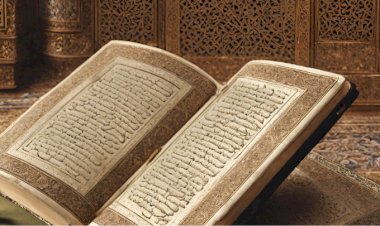














Leave A Comment